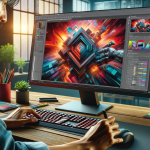Older video games often risk being forgotten as technology moves forward, but digital storefronts like GOG are working to prevent their disappearance. Known for its roots in classic game distribution, GOG has spent years negotiating with major publishers to digitally release titles long unavailable to Western gamers. The storefront’s recent collaborations with Japanese companies highlight the challenges and persistence involved in bringing legacy games to modern audiences. As interest in retro gaming grows, GOG’s efforts continue to attract attention from fans eager for both nostalgia and accessibility.
Efforts by GOG to re-release titles such as Metal Gear, Contra, Resident Evil, and Silent Hill stand out among similar projects led by platforms like Steam and the Epic Games Store. While these competitors have at times secured noteworthy classic titles, GOG distinguishes itself by focusing not only on distribution but also on technical adaptation, making older games compatible with current systems. Earlier announcements from GOG highlighted the difficulty of licensing deals, and past coverage often depicted the process as complex and time-consuming, with publishers sometimes hesitant to participate. The inclusion of games like Breath of Fire 4 demonstrates an expansion of GOG’s preservation initiative into more Japanese releases, bridging a gap in digital game availability outside Japan.
How Has GOG Expanded Its Preservation Program?
GOG has gradually built relationships with Japanese publishers such as Konami and Capcom, securing digital distribution rights to older games that were previously difficult to obtain in Western markets. Notable additions include Silent Hill 4: The Room, several Castlevania and Contra titles, as well as the first three Resident Evil games and Dino Crisis. These releases are a result of sustained negotiation and an emphasis on establishing trust with rights holders, with some deals requiring years to finalize. “Preservation often means knocking on the same doors again and again, hearing ‘no’ most of the time, until one day, it’s finally a ‘yes,’” stated Piotr Gnyp, GOG’s senior PR representative.
What Technical Steps Ensure Games are Playable Now?
For each project, GOG either collaborates directly with creators or, more commonly, handles adaptation internally to support modern hardware and operating systems. This process includes custom tool development, integration of fan-made patches, and implementation of contemporary controller support when appropriate. Gnyp emphasized the complexities involved:
“Our internal tech team analyzes each game, builds custom wrappers or tools when needed, and thoroughly tests the result. That’s how we make sure the experience is authentic but also practical for today’s players.”
The intent is to provide an authentic yet functional experience, so each title requires careful attention to detail throughout testing and deployment.
Why Are Some Games Removed from GOG’s Catalogue?
Despite GOG’s ongoing preservation work, not all releases remain available indefinitely. Titles such as the Warcraft series and games developed by Adult Swim have been removed, either due to shifting rights agreements or publisher strategy. External pressures, including efforts by advocacy groups to remove some content, have also contributed to the delisting of certain titles. In response to concerns about disappearing games, Gnyp offered a statement:
“At GOG, as a platform devoted to Good Old Games and videogame preservation, we see it as a game preservation issue. Every year, many games are disappearing, for various reasons. Every game that disappears from distribution is potentially lost to game preservation efforts. It is particularly worrying when games are potentially vanishing due to external pressure.”
GOG has recently reacted to such pressures by temporarily offering affected games free of charge, aiming to keep them accessible to consumers despite outside attempts at removal.
GOG’s proactive approach to game preservation not only serves collectors and longtime players but also introduces important works to new audiences. The process often faces legal and cultural obstacles, especially with older Japanese IPs, yet consistent technical effort and negotiation have led to the return of significant titles like Resident Evil and Breath of Fire 4 for a global audience. Considering the risk of delisting and the nuances of digital rights management, users seeking classic experiences may find value in acquiring desired titles sooner rather than later. As digital storefronts continue to mediate between consumers and publishers, ongoing debates about availability, ownership, and cultural preservation will likely influence future catalog offerings.
- GOG expands Western access to classic Japanese games after lengthy negotiations.
- The platform adapts older games for modern systems, focusing on compatibility.
- Rights issues and censorship pressures cause some games’ removal despite preservation efforts.










